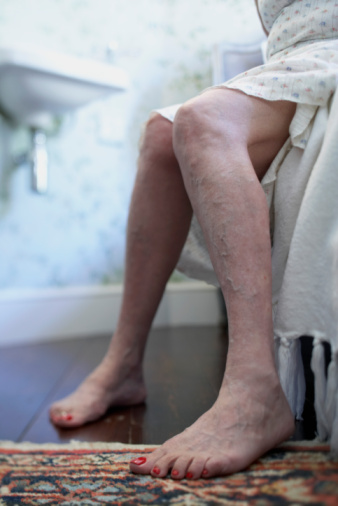In the last few years there have been several studies linking vitamin D to various sleep disorders. This is not surprising as we are becoming more aware of the numerous functions this vitamin serves at a cellular level. It is not only intimately involved in the regulation of calcium, phosphorous, and bone growth, but also muscle function, immune regulation, and brain function.
There have also been studies linking a deficiency of vitamin D to sleepiness and enlarged tonsils in children, resulting in pediatric sleep apnea. However, the new studies indicating a link to restless legs syndrome are truly eye opening.
In a study published in the journal Sleep Breath in August titled The Effect of Vitamin D Supplements on the Severity of Restless Legs Syndrome, twelve subjects diagnosed with RLS and vitamin D deficiency were recruited. These patients had primary RLS, meaning there was no other obvious cause. They were treated with vitamin D and after their levels were corrected, they were reassessed. The severity of their RLS was significantly improved after treatment. The authors conclude that it is quite likely that vitamin D deficiency may be associated with RLS.
This comes on the heels of several other studies that have shown low levels of vitamin D in people with RLS. This may not be very surprising considering that low levels of vitamin D interfere with the function of a major brain neurotransmitter, dopamine. We believe that dysfunction of dopamine is intimately related to RLS.
Vitamin D is abundant in certain foods that include milk and eggs as well as oily fish such as salmon, cod, and mackerel. Another source is our skin, which can produce vitamin D upon exposure to sunlight. Risk factors that lead to low levels include dark skin pigmentation, limited sunlight exposure, pregnancy, abnormal intestinal absorption, and some medications.
As a result of these and several other studies relating vitamin D not only to restless legs syndrome but also to sleep apnea, excessive sleepiness, and nighttime muscle cramps, I intend to start checking my patient’s vitamin D levels more often. It is now available as a routine blood test. I am only sorry that I was not aware of this relationship before. Just a decade ago, most of us in sleep medicine would never have imagined that the same vitamin deficiency that can cause rickets and osteoporosis could be involved in sleep disorders. This is another example of modern medicine never failing to amaze and humble me.


